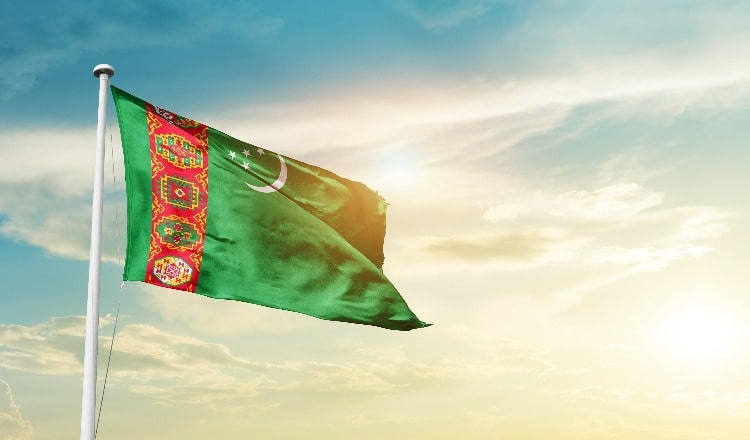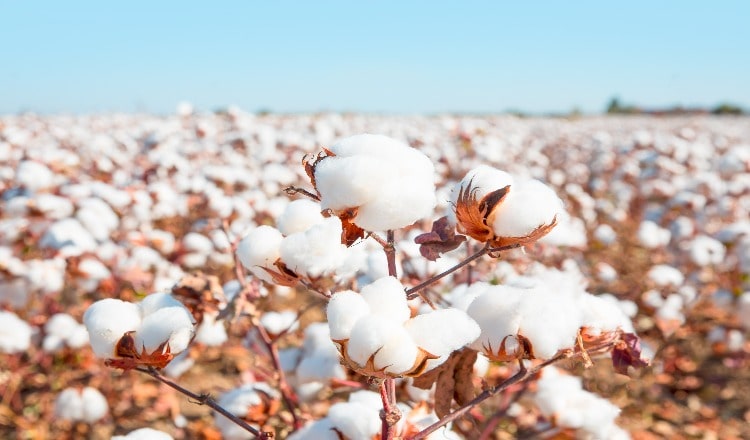In the latest blog, Ruslan Myatiev, founder of Turkmen.news, details the latest findings from the Turkmen cotton harvest.

Every year, thousands of people in Turkmenistan are forced into the fields to pick cotton. Despite campaigning and public pressure, the 2021 cotton harvest in Turkmenistan was no exception to the norm. Once again, tens of thousands of Turkmen citizens were forced to pick cotton in hazardous and unsanitary conditions, under the vigilance of the country’s extremely oppressive regime.
The results of independent monitoring by Turkmen.news and the Turkmen Initiative for Human Rights (TIHR) during the 2021 cotton harvest have now been released. This time, not only doctors and teachers were forced to pick cotton, but also vulnerable groups such as migrant workers and service members with registered addictions, whilst those accused of prostitution or alimony delinquency were also forced to pick cotton.
Fuelled by poverty and inequality in the country, forced child labour was also used in the 2021 harvest, despite an official prohibition which does not allow children to work in the fields. Some children in their teens had to pick cotton.
“Dozens of children, some of them coughing and sneezing, could be seen in the fields along the road in the Baharden farmers’ association (Ahal region). Though they were clearly unwell, they were still kept in the fields”
Radio Liberty Sources
Turkmen cotton into global markets

Shockingly, products tainted with forced labour cotton from Turkmenistan continue to enter global markets and could be present in many of the goods we buy.
Cotton is big business for Turkmenistan. For example, global trade data shows that in 2020, the EU imported over €7.5 million worth of cotton and over €5 million worth of textiles directly from Turkmenistan. These figures exclude the huge volume of products made with Turkmen cotton that enter the EU through different routes, within a sprawling cotton value chain, for example through Turkey or Pakistan.
There should be no doubt that all cotton originating in Turkmenistan is produced with forced labour imposed by the state.
Due to the scale of these abuses, which includes restrictions of freedom of speech and freedom of association, together with the state’s full control of any civil society activities, it is currently impossible for businesses to improve the human rights situation on the ground. Businesses’ economic power needs to be channelled differently if the industry truly wants to drive meaningful change.
How should governments and the EU respond to the situation in Turkmenistan?

Turkmen.news, together with Anti-Slavery International and other global partners, have been calling on the EU and several governments around the world to introduce an effective instrument that would ban the imports of goods made with forced labour into their markets. Such a mechanism is essential to address contexts where forced labour is imposed by the state, in the production of textiles and other cotton products sold across the world, including products containing Turkmen cotton.
Import controls are particularly needed when businesses’ efforts on the ground to address forced labour are impossible, as in the case of Turkmenistan. Such an instrument would also incentivise businesses to meaningfully trace their supply chains, ensuring that Turkmen cotton is not present in any of the products they offer.
In February 2022, the European Commission published a Communication on Decent Work worldwide, announcing “the Commission is preparing a new legislative instrument to effectively ban products made by forced labour from entering the EU market”. Since then, the EU has moved fast in the development of a “Forced Labour Instrument”, which should ban the imports of any forced labour tainted goods, such as Turkmen cotton.
For the Forced Labour Instrument to be effective, it should, at minimum include:
- Provision that products made in-whole or in-part with cotton from Turkmenistan can be detained or seized at EU borders, given the widespread and systematic nature of the issue in the country
- A clear objective designed to ensure the provision of effective remedy to affected stakeholders as efficiently and quickly as possible. Exceptionally, in the context of state-imposed forced labour in Turkmen cotton production, companies are unable to reach out to affected workers. As an alternative, businesses should be required to engage with representatives of the global Turkmen community to support financial aid to Turkmen refugees, including victims of forced labour, and Turkmen human and labour rights organisations working from exile
- A global aligned approach on import controls. Similar mechanisms are already in place in countries such as the US and Canada. A coordinated international approach would reduce the risk of goods being reshipped to markets without import control measures, where countries could become dumping grounds for forced labour goods
Here you can read Anti-Slavery International’s full position paper on when and how governments should introduce import controls to end forced labour.
Do also keep an eye on Turkmen.news and our Twitter page for more updates.
We cannot allow this abuse to go unchallenged.